

Articles
How To Store Egg Noodles Long Term
Modified: May 6, 2024
Learn the best methods for storing egg noodles long term with our informative articles. Keep your noodles fresh and delicious for extended periods.
(Many of the links in this article redirect to a specific reviewed product. Your purchase of these products through affiliate links helps to generate commission for Storables.com, at no extra cost. Learn more)
Introduction
Egg noodles are a versatile and delicious staple in many cuisines around the world. Whether you enjoy them in soups, stir-fries, or as the base for hearty pasta dishes, egg noodles add a distinctive taste and texture to any recipe. As a food that many people enjoy, it’s essential to know how to store egg noodles properly to maintain their quality and extend their shelf life.
Proper storage of egg noodles is crucial to prevent them from becoming stale or developing off flavors. Whether you have just bought a large quantity of egg noodles or made a large batch at home, ensuring they stay fresh and safe for extended periods requires the right storage techniques.
In this article, we will explore various methods for storing egg noodles long term. We will discuss the importance of proper storage, the different techniques you can use, and some helpful tips to maximize the shelf life of your egg noodles.
Key Takeaways:
- Preserve the freshness and flavor of egg noodles long term by using vacuum sealing, freezing, airtight containers, or Mylar bags. Proper storage techniques and regular checks ensure safe and enjoyable consumption.
- Maximize the shelf life of egg noodles with helpful tips such as proper packaging, labeling, and storage in a cool, dry place. Regular rotation and hygiene practices maintain the quality for delicious culinary creations.
Read more: How To Store Noodles Long Term
Understanding Egg Noodles
Before delving into the storage methods, it’s important to have a basic understanding of egg noodles. Unlike regular pasta, which is made from flour and water, egg noodles contain a higher ratio of eggs to flour. The addition of eggs gives them a richer flavor and a softer, more tender texture.
Egg noodles come in various shapes and sizes, including thin strands, wide ribbons, and small dumplings. They are a popular choice in many Asian cuisines, such as Chinese and Japanese, where they are often used in soups and stir-fries. Additionally, egg noodles are a common ingredient in Eastern European dishes like kugel and spaetzle.
One of the advantages of egg noodles is their versatility. They can be cooked in a matter of minutes and pair well with a variety of ingredients, from vegetables and meats to creamy sauces and broths. With their high protein content from the eggs, egg noodles can also be a satisfying and nutritious addition to your meals.
It is important to note that egg noodles can be made at home from scratch, giving you full control over the quality and ingredients. However, store-bought egg noodles are more widely available and convenient. Whether you choose to make them from scratch or purchase them, proper storage is essential to maintain the freshness and flavor of these delicate noodles.
Now that you have a better understanding of egg noodles, let’s explore why proper storage is crucial to extend their shelf life and preserve their taste.
Importance of Proper Storage
Proper storage is essential to maintain the quality, taste, and texture of egg noodles over an extended period. When stored incorrectly, egg noodles can become stale, lose their flavor, and even develop mold or bacterial growth. Understanding the importance of proper storage techniques will help you avoid these issues and ensure that your egg noodles stay fresh for as long as possible.
One of the primary enemies of food storage is moisture. Exposure to moisture can cause egg noodles to become soggy, sticky, and prone to spoilage. Moisture can also lead to the growth of mold or bacteria, which can pose health risks if consumed.
Another factor that can affect the quality of egg noodles is exposure to air. The air contains oxygen, which can cause oxidation and lead to the development of off flavors or rancidity in the noodles. Additionally, exposure to air can result in the absorption of odors from the surrounding environment, which can alter the taste and aroma of the noodles.
Proper storage techniques create a protective barrier against moisture and air, preserving the freshness and quality of the egg noodles. By storing them under the right conditions, you can extend their shelf life and ensure that they are safe and enjoyable to eat.
Now that you understand why proper storage is crucial, let’s explore some effective methods for storing egg noodles long term.
Methods for Storing Egg Noodles Long Term
When it comes to storing egg noodles long term, there are several effective methods that can help preserve their freshness and quality. These methods create optimal storage conditions to protect the noodles from moisture, air, and other factors that can lead to spoilage. Let’s explore some of these methods:
- Vacuum Sealing Method: Vacuum sealing is an excellent technique for preserving the freshness of egg noodles. This method involves using a vacuum sealer to remove all the air from the packaging before sealing it. By removing the air, you create airtight conditions that prevent the noodles from being exposed to oxygen, thereby extending their shelf life. Vacuum-sealed egg noodles can be stored in a cool, dry place or even in the freezer.
- Freezing Method: Freezing is another effective method for storing egg noodles long term. Before freezing, it is recommended to blanch the noodles briefly in boiling water and then shock them in an ice bath to stop the cooking process. This helps preserve their texture. Once blanched, drain the noodles thoroughly and transfer them to a freezer-safe container or bag, ensuring you remove all excess air. Frozen egg noodles can be stored for several months, and they should be thawed before cooking.
- Storing in Airtight Containers: One of the simplest methods for storing egg noodles is to use airtight containers. Transfer the noodles to clean, dry containers with tight-fitting lids. Make sure to press down on the lid to remove any excess air before sealing. Storing the noodles in airtight containers helps prevent moisture, air, and odors from affecting their quality. It is advisable to keep the containers in a cool, dark place away from direct sunlight.
- Storing in Mylar Bags: Mylar bags are another excellent option for long-term storage of egg noodles. These sturdy, food-grade bags provide a barrier against moisture, air, and light. Place the noodles in the Mylar bag and use a heat sealer to seal it tightly. For added protection, you can place the Mylar bag in a rigid container or bucket for storage. With proper sealing and storage, egg noodles stored in Mylar bags can last for an extended period.
These methods offer effective ways to store egg noodles long term, ensuring their freshness and quality are maintained. However, regardless of the storage method you choose, there are a few tips you can follow to maximize the shelf life of your egg noodles.
Next, we’ll take a closer look at some tips for maximizing the shelf life of egg noodles.
Vacuum Sealing Method
The vacuum sealing method is a highly effective way to store egg noodles long term. This technique creates an airtight environment, preventing oxygen from reaching the noodles and causing oxidation and spoilage. Here’s how you can use the vacuum sealing method:
- Start by portioning your cooked or uncooked egg noodles into meal-size servings. This will make it easier to use the noodles later without having to thaw or open a large package.
- If you are using cooked egg noodles, allow them to cool completely before vacuum sealing. This helps prevent condensation inside the vacuum-sealed package, which can lead to freezer burn.
- Place the portioned egg noodles into a vacuum-seal bag, leaving enough space at the top for sealing.
- Using a vacuum sealer, carefully place the open end of the bag into the machine and activate the vacuum sealing process. The machine will remove the air from the bag and heat-seal it shut.
- Once the bag is sealed, check for any leaks or weak spots in the seal. If needed, trim the bag and reseal it to ensure a proper airtight seal.
- Label each vacuum-sealed bag with the date and contents to keep track of their freshness.
- Store the vacuum-sealed egg noodles in a cool, dry place, or place them in the freezer for long-term storage.
When properly vacuum-sealed, egg noodles can stay fresh in the pantry for several months and in the freezer for up to a year. It’s crucial to note that vacuum sealing is not suitable for homemade egg noodles with high moisture content, as they can become overly compressed and lose their texture.
The vacuum sealing method is a convenient way to store egg noodles, as it allows you to portion them according to your needs. Whether you’re using the noodles for quick weeknight meals or planning for future events, vacuum-sealed egg noodles will remain fresh and ready to use whenever you need them.
Next, let’s explore the freezing method, another effective way to store egg noodles long term.
To store egg noodles long term, place them in an airtight container or resealable bag and store in a cool, dry place away from direct sunlight and moisture. This will help to maintain their quality and prevent them from spoiling.
Read more: How To Store Egg Noodles
Freezing Method
The freezing method is a popular and reliable way to store egg noodles for an extended period. Freezing helps to preserve their texture and flavor, making them readily available for future use. Here’s a step-by-step guide on how to freeze egg noodles:
- If you have freshly made egg noodles, allow them to dry for a short period until they are no longer sticky. This step is crucial to prevent the noodles from clumping together when frozen.
- Bring a large pot of water to a rolling boil and blanch the egg noodles for 1-2 minutes. This process helps maintain their texture and prevents them from becoming mushy when thawed.
- Quickly transfer the blanched noodles to an ice bath to cool and stop the cooking process. This step also helps preserve their texture and prevents them from sticking together.
- Drain the cooled noodles thoroughly to remove excess moisture. You may want to pat them dry with a clean kitchen towel to eliminate any remaining water.
- Separate the noodles into portioned servings, depending on your needs. This allows for easy access to the desired quantity without thawing more noodles than necessary.
- Place the portioned noodles in freezer-safe containers or bags. Make sure to remove as much air as possible to prevent freezer burn and maintain the quality of the noodles.
- Seal the containers or bags securely and label them with the date and contents.
- Transfer the egg noodles to the freezer and store them upright to prevent them from getting crushed or damaged.
Frozen egg noodles can typically be stored for up to 6 months, but they may remain safe to eat even beyond that time. However, to maintain optimal quality, it’s best to consume them within the first few months after freezing.
When you’re ready to use the frozen egg noodles, simply remove the desired portion from the freezer and allow them to thaw in the refrigerator overnight. Alternatively, you can add the frozen noodles directly to boiling water and cook them for a few minutes until they are heated through and tender.
The freezing method is a convenient option for preserving the freshness and flavor of egg noodles, ensuring that you always have a delicious and versatile ingredient readily available in your freezer.
Next, we’ll explore another method for storing egg noodles long term – storing them in airtight containers.
Storing in Airtight Containers
Storing egg noodles in airtight containers is a simple and effective method to maintain their freshness and quality. Airtight containers create a barrier against moisture, air, and odors, keeping the noodles safe from spoilage. Follow these steps to store egg noodles in airtight containers:
- Ensure that your egg noodles are completely cool and dry before transferring them to the containers. This helps prevent condensation and the growth of mold.
- Choose clean and dry airtight containers with tight-fitting lids. Glass or plastic containers with rubber seals work well for this purpose.
- Portion the noodles into meal-sized servings, depending on your needs. This way, you only need to open the necessary amount without exposing the remaining noodles to air.
- Place the egg noodles into the airtight containers, ensuring there is enough space at the top to properly seal the lid.
- Press down firmly on the lid to remove as much air as possible before sealing it. This helps create a tight seal and minimizes exposure to oxygen.
- Label each container with the date and contents to keep track of their freshness.
- Store the airtight containers of egg noodles in a cool, dark place, away from direct sunlight and other sources of heat.
When stored in airtight containers, egg noodles can retain their freshness for several months. However, it’s important to periodically check the containers for any signs of moisture or spoilage. If you notice any changes in color, texture, or smell, discard the noodles to ensure your safety.
Storing egg noodles in airtight containers also makes it convenient to access and use them whenever needed. You can simply remove the desired amount of noodles without the need for thawing or defrosting.
Remember to always practice proper hygiene and handling techniques when using stored egg noodles. Keep utensils and surfaces clean to avoid contamination and ensure a safe and enjoyable culinary experience.
Next, let’s explore another effective method for long-term storage – storing egg noodles in Mylar bags.
Storing in Mylar Bags
Storing egg noodles in Mylar bags is a reliable and efficient method to ensure their long-term freshness. Mylar bags provide an additional layer of protection against moisture, air, and light, helping to preserve the quality of the noodles. Here’s how you can store egg noodles in Mylar bags:
- Prepare your egg noodles by allowing them to dry completely. This step is crucial to prevent moisture from causing the noodles to become clumped together when stored.
- Select food-grade Mylar bags that are suitable for long-term storage. These bags are designed to create a barrier against moisture and oxygen, protecting the noodles from spoilage.
- Portion the noodles into meal-sized servings for convenience. This allows you to open only the necessary amount of noodles at each use.
- Carefully fill the Mylar bags with the portioned egg noodles, leaving some headspace at the top to create a proper seal.
- Using a heat sealer, seal the Mylar bags tightly. Ensure that you achieve a complete and airtight seal to prevent any oxygen or moisture from entering.
- To provide an extra layer of protection, you can place the sealed Mylar bags into rigid containers or buckets for additional support and to prevent punctures or tears in the bags.
- Label each Mylar bag with the date and contents to keep track of their freshness.
- Store the Mylar bags in a cool, dry, and dark place, away from direct sunlight and extreme temperatures.
When properly stored in Mylar bags, egg noodles can maintain their quality for an extended period. These bags are durable, ensuring long-term preservation of the noodles while preventing moisture, air, and light from affecting their texture and flavor.
Remember to periodically inspect the Mylar bags for any signs of damage or leaks. If you notice any issues, it’s best to transfer the noodles to a new bag to ensure their safety and freshness.
Storing egg noodles in Mylar bags allows for easy access and portioning. You can take out the desired amount of noodles without the need for thawing or defrosting, making meal preparation quick and hassle-free.
Now that you’ve learned various methods for storing egg noodles long term, let’s explore some additional tips to help maximize their shelf life and maintain their quality.
Tips for Maximizing Shelf Life
To ensure the maximum shelf life and quality of your stored egg noodles, consider following these helpful tips:
- Properly package the noodles: Whether you’re using vacuum-sealed bags, airtight containers, or Mylar bags, make sure to remove excess air and create a tight seal. This prevents the noodles from being exposed to oxygen or moisture, which can lead to spoilage.
- Label and date your storage containers: It’s important to keep track of the storage date and contents of your egg noodles. By labeling your containers or bags, you can easily identify them and use the noodles in a first-in, first-out (FIFO) manner.
- Keep them in a cool, dry place: Egg noodles are best stored in a cool and dry environment. Avoid areas with direct sunlight, high humidity, or extreme temperature fluctuations, as these conditions can negatively impact the quality of the noodles.
- Avoid exposure to strong odors: Egg noodles can absorb odors easily, so it’s crucial to store them away from strong-smelling substances. Keep them separated from spices, onions, garlic, or other pungent ingredients that could affect their taste and aroma.
- Rotate your noodles regularly: To ensure you use the oldest noodles first and maintain a fresh supply, practice rotation by placing newly stored noodles at the back and moving older ones to the front. This helps prevent any noodles from being forgotten or left unused for extended periods.
- Periodically check for signs of spoilage: Regularly inspect your stored noodles for any signs of mold, unusual color, or off odors. If you notice any of these signs, it’s best to discard the noodles to avoid any potential health risks.
- Use proper handling and hygiene: Always use clean utensils and ensure proper hand hygiene when handling the stored egg noodles. This helps minimize the potential for contamination and ensures safe consumption.
By following these tips, you can prolong the shelf life of your egg noodles and ensure that they remain fresh and safe for consumption. Whether you use them for quick weeknight meals or reserve them for special occasions, proper storage techniques play a crucial role in maintaining their quality.
Remember, while egg noodles can have a long shelf life, it’s always best to use them within a reasonable time frame to enjoy the best flavor and texture. When in doubt, trust your senses and use your judgment to determine if the noodles are still suitable for consumption.
With these storage methods and tips in mind, you can confidently store your egg noodles long term and enjoy their deliciousness whenever you desire.
If you are looking for more information or creative recipes using egg noodles, feel free to explore our website for inspiration. Happy cooking!
Finally, always store your HTML files in a safe place and make sure to validate your HTML code to ensure it is error-free and properly formatted.
Read more: How To Store Eggs Long Term
Conclusion
Proper storage is crucial for maintaining the freshness, flavor, and quality of egg noodles long term. Whether you choose to use the vacuum sealing method, freezing method, storing in airtight containers, or Mylar bags, each technique creates an environment that protects the noodles from moisture, air, and other factors that can lead to spoilage.
By following the tips provided and selecting the storage method that suits your needs, you can extend the shelf life of your egg noodles and ensure they are always ready to use for your favorite recipes. Properly stored egg noodles can offer convenience and make meal preparation a breeze, whether for simple weeknight dinners or special occasions.
Remember to label and date your containers, keep the noodles in a cool, dry place, avoid exposure to strong odors, and periodically check for signs of spoilage. Practicing good hygiene and handling techniques is also essential to ensure the stored egg noodles remain safe for consumption.
Now that you’re equipped with the knowledge of proper storage techniques and helpful tips, you can confidently store your egg noodles for the long term. Enjoy the convenience and versatility of having delicious egg noodles at your fingertips, enhancing your culinary creations with their distinctive taste and texture.
Happy storing and cooking!
Now that you've mastered keeping egg noodles fresh, why not tackle another crucial kitchen task? Organizing a pantry closet can transform your cooking space from chaotic to serene, making every meal prep smoother. Check out our guide on how to turn that pantry clutter into a well-arranged haven, ensuring everything you need is right at your fingertips.
Frequently Asked Questions about How To Store Egg Noodles Long Term
Was this page helpful?
At Storables.com, we guarantee accurate and reliable information. Our content, validated by Expert Board Contributors, is crafted following stringent Editorial Policies. We're committed to providing you with well-researched, expert-backed insights for all your informational needs.
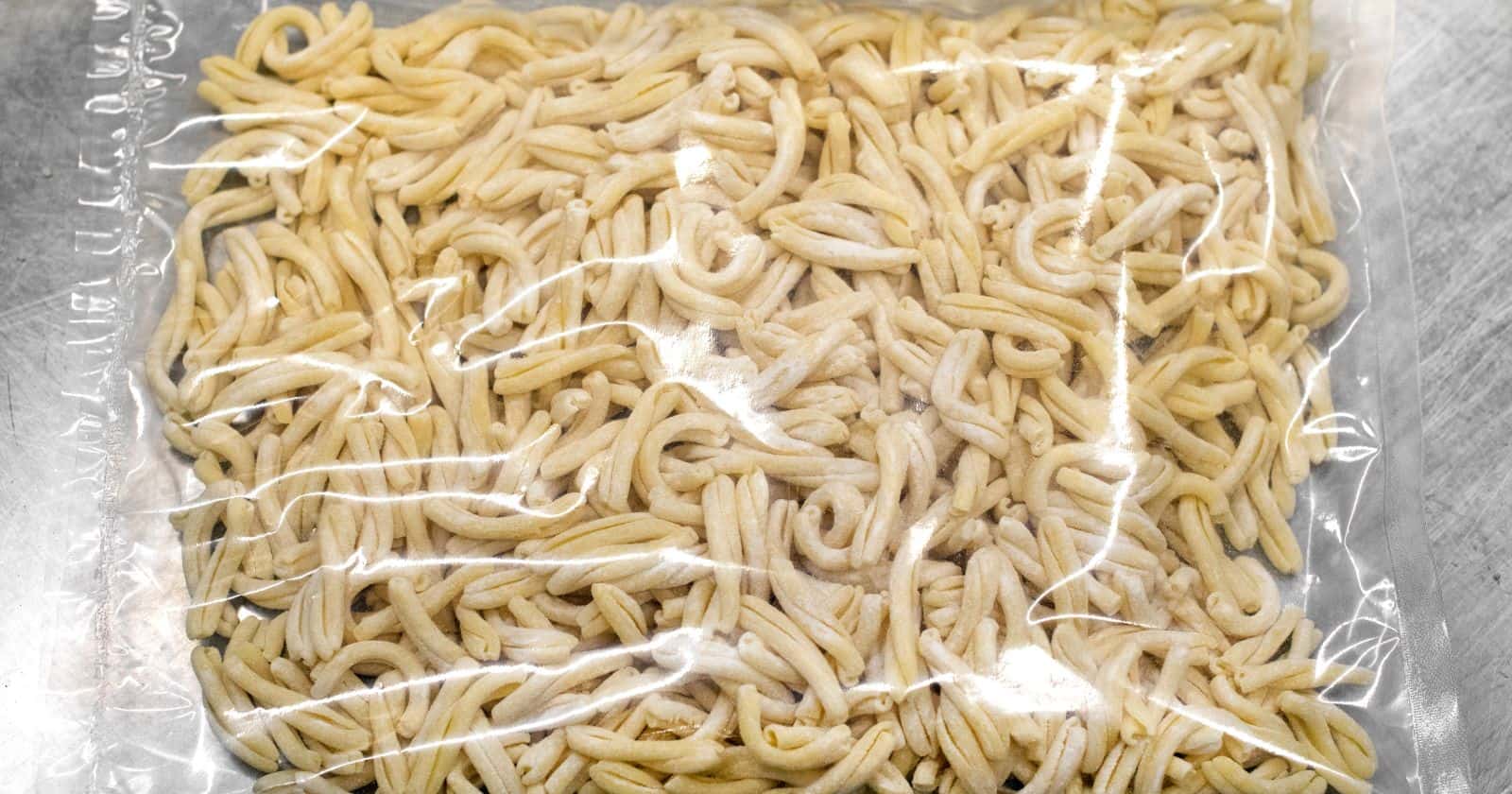


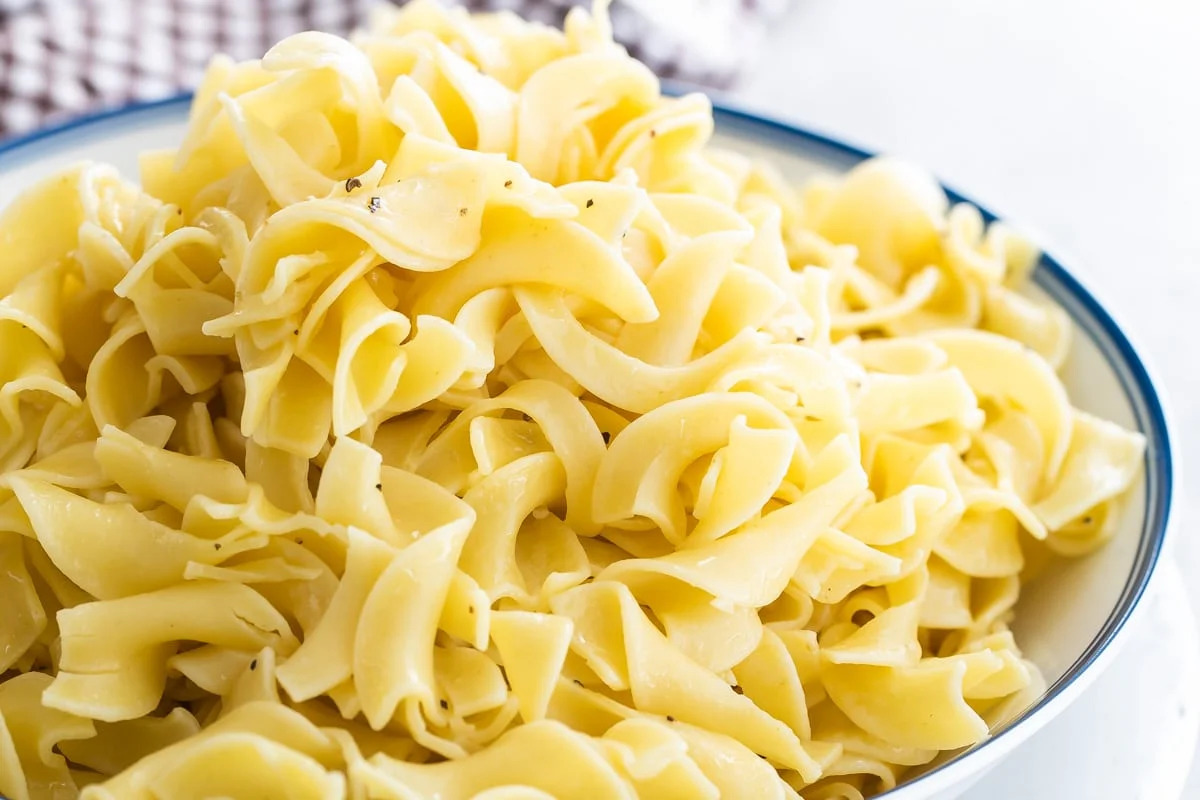
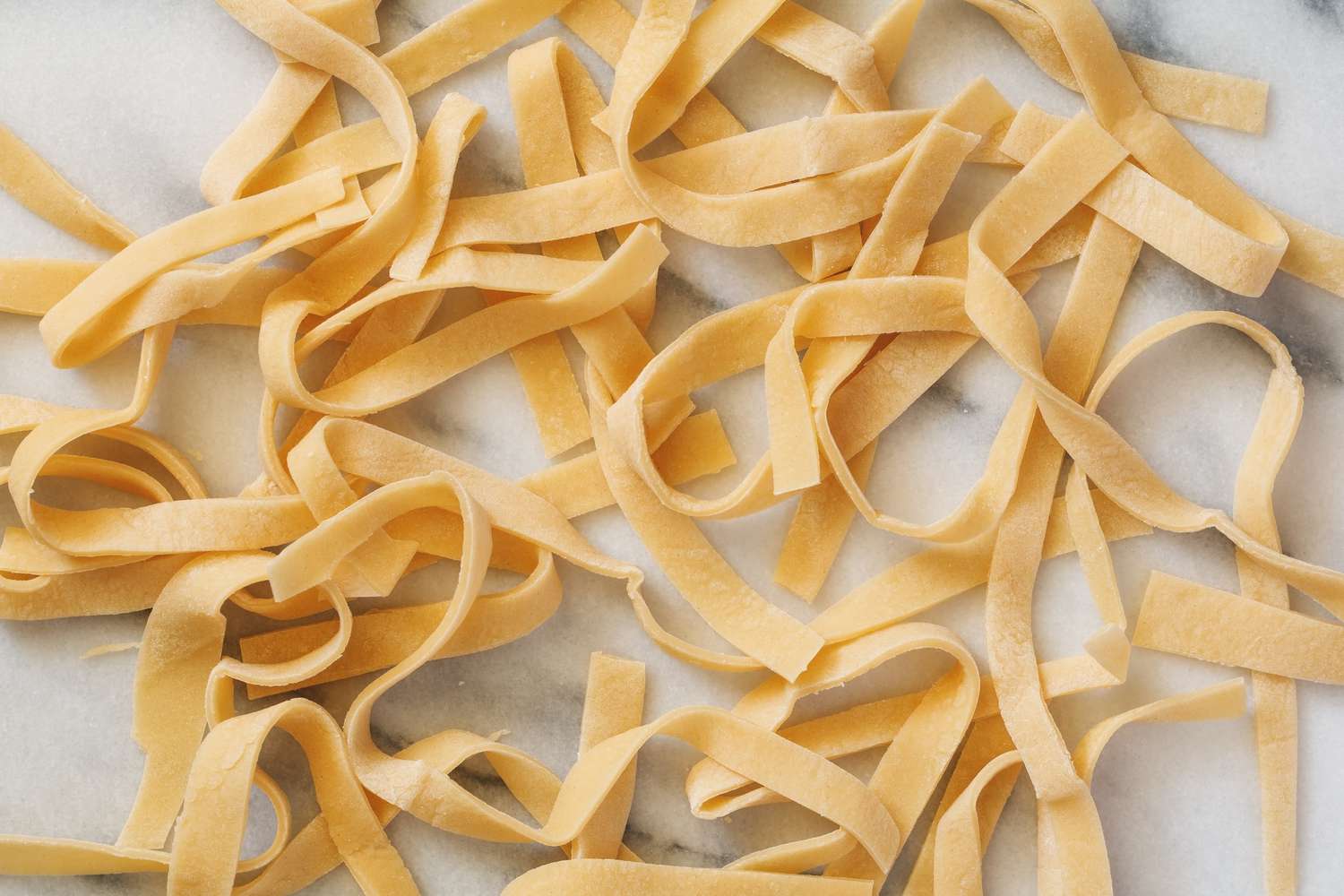

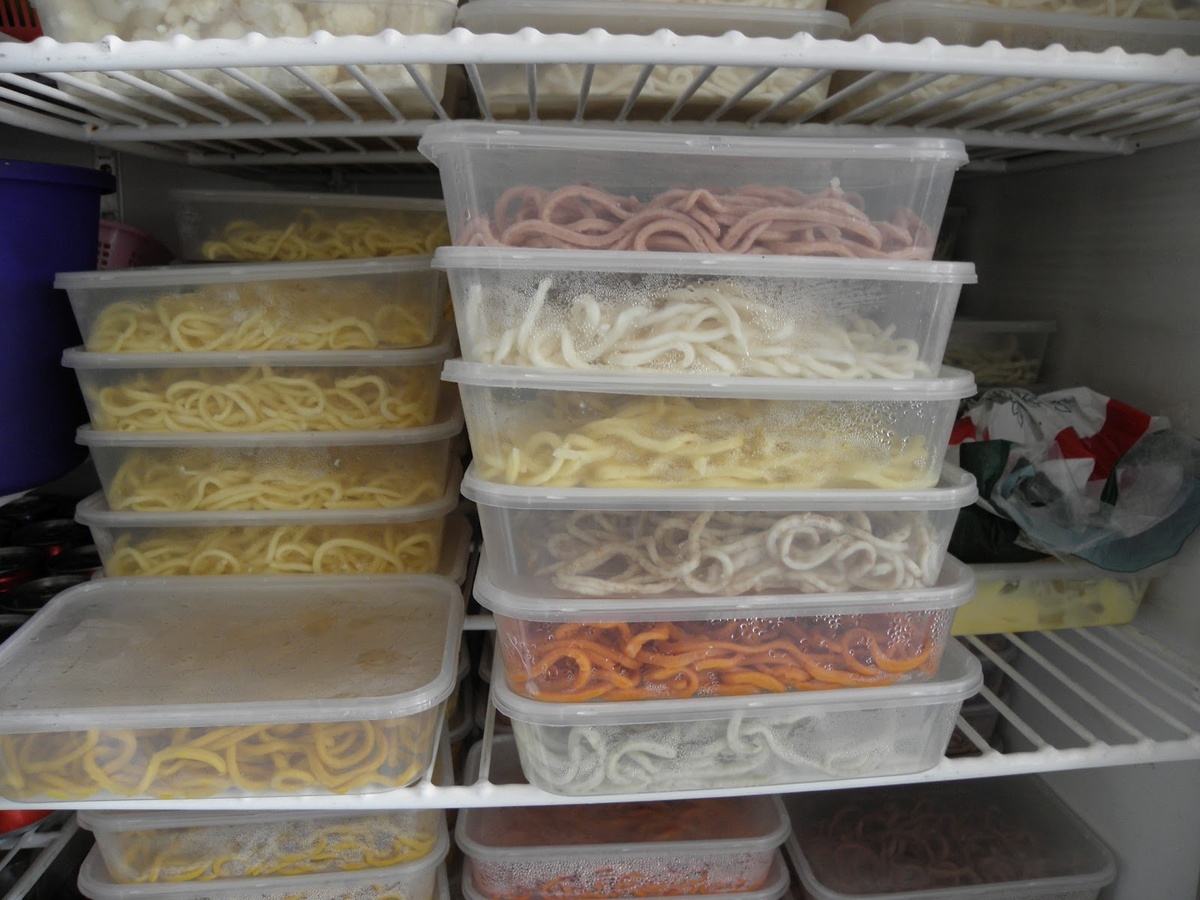


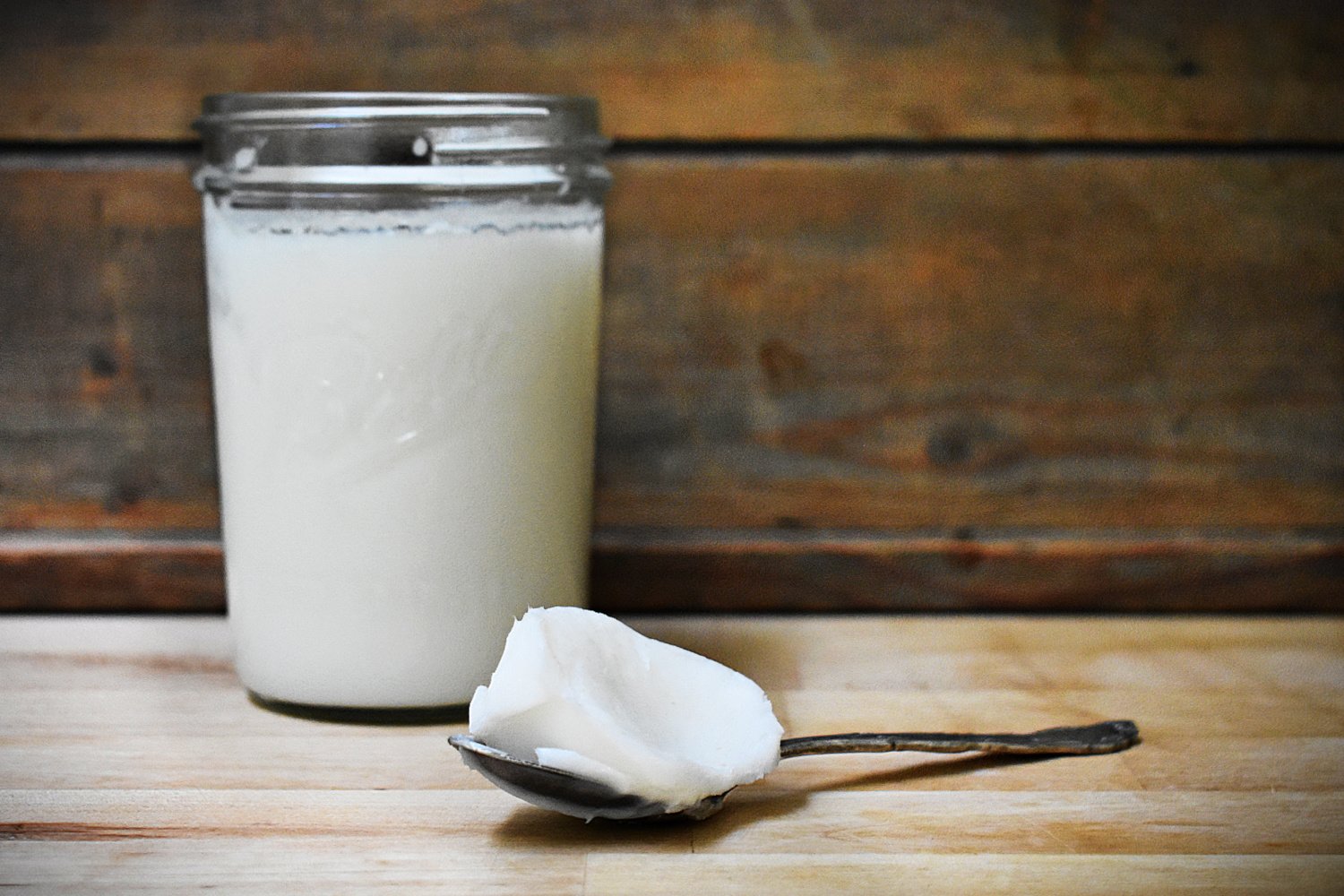


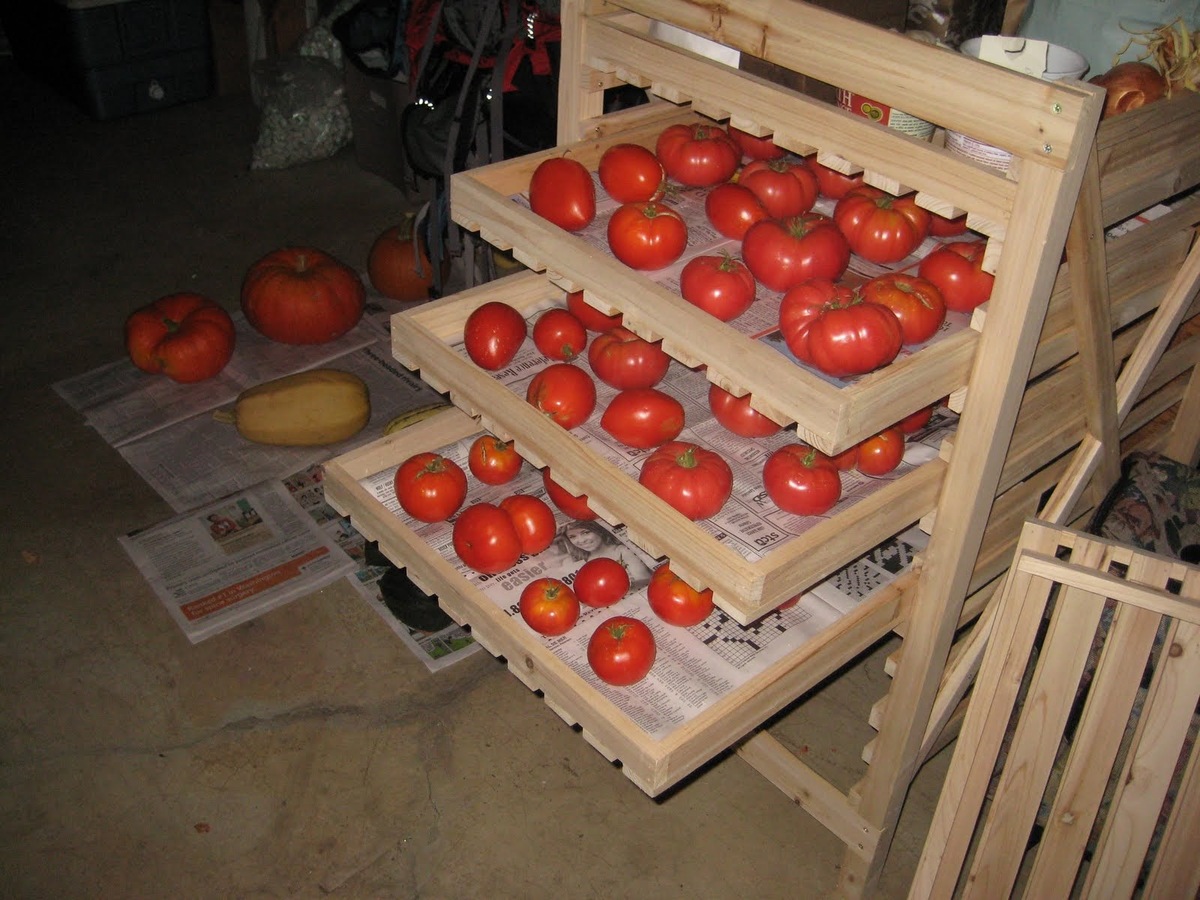

0 thoughts on “How To Store Egg Noodles Long Term”